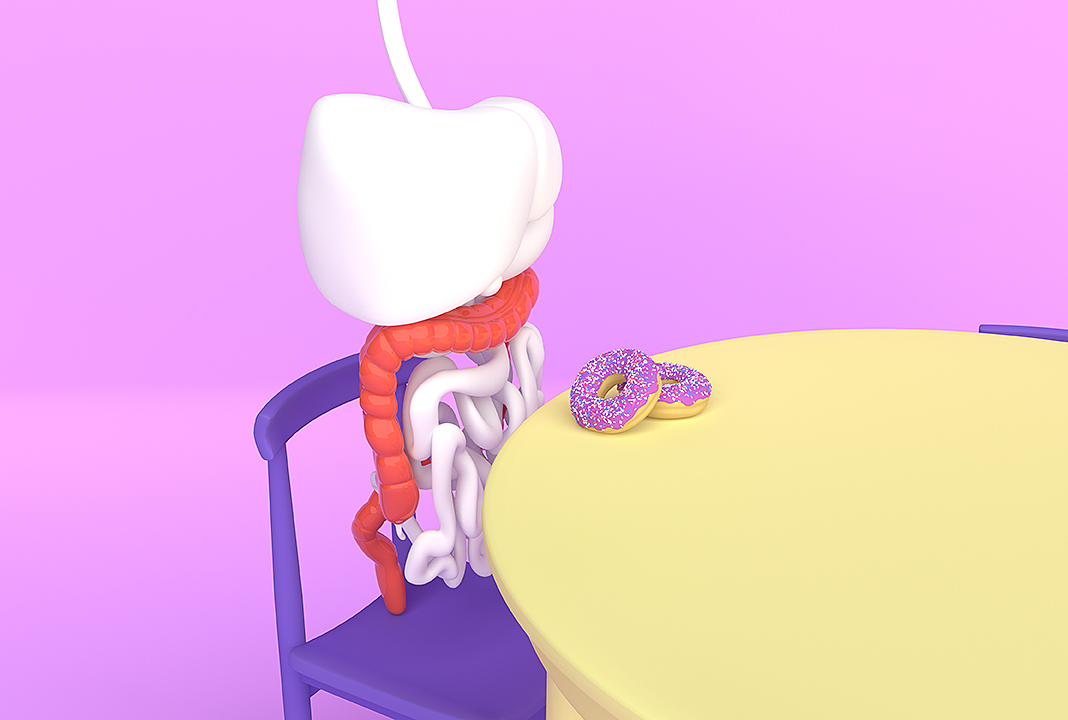Crohn's Disease: Causes, Symptoms and Treatment

Crohn's disease is a kind of inflammatory bowel disease (IBD) that causes inflammation in various parts of the digestive tract and can spread to deeper layers of the bowel. IBD, including Crohn's and ulcerative colitis, affects about 3 million American adults. While Crohn's disease isn't fatal, it can lead to life-threatening complications.
Causes and symptoms of Crohn's
Doctors are unsure of the exact causes of Crohn's disease. Medical experts previously believed diet and stress were the sources of IBD, and while those factors can worsen symptoms, experts no longer think they cause the condition.
Though studies are ongoing, researchers believe immune system malfunctions may be to blame for IBD. The theory is the immune system incorrectly attacks the cells of the digestive tract as it tries to get rid of invading viruses or bacteria. Research has also shown that people with a family history of IBD are more likely to get it themselves. However, it's important to note most people with inflammatory bowel disease don't have a family history of it.
Symptoms of Crohn's disease vary depending on the severity and location of the condition. For example, Crohn's disease can cause inflammation in different parts of the digestive tract, including one or multiple parts of the small or large intestine. Although symptoms typically develop gradually over time, they can also occur suddenly, as IBDs are known to involve cycles of flare-ups and remission.
Symptoms a patient may notice when experiencing a Crohn's flare-up include:
- Diarrhea
- Fever
- Fatigue
- Abdominal pain
- Cramping
- Bloody stool
- Mouth sores
- Reduced appetite
- Unintentional weight loss
- Pain or drainage near or around the anus due to inflammation from a tunnel into the skin, also known as a fistula
Severe cases of Crohn's disease can cause inflammation of the skin, eyes, joints, liver and bile ducts. These cases can also lead to kidney stones, iron deficiency and delayed growth in children. If you suspect you may have Crohn's, consult your doctor right away. Getting treatment can help manage symptoms and potentially lead to long-term remission.
Getting treated
While there is no known cure for Crohn's disease, a variety of treatment options are available to manage symptoms and address complications. The main goal of Crohn's disease treatments is to reduce inflammation and limit complications.
Depending on your symptoms and their severity, your doctor may recommend:
- Anti-inflammatory medication. Often the first attempt at Crohn's management, medications such as corticosteroids can be used to reduce inflammation of the digestive tract.
- Immune system suppressors. These drugs target the immune system, which may be responsible for the inflammation characteristic of the disease.
- Biologics. This class of medication treats inflammation of the digestive tract by targeting certain proteins made by the immune system.
- Antibiotics. Sometimes antibiotics are necessary to reduce the amount of drainage that comes from fistulas and abscesses caused by Crohn's disease. Some researchers believe antibiotics can rid the body of harmful intestinal bacteria that may play a role in triggering inflammation.
- Symptom-managing medication. Common drugs prescribed to manage symptoms include antidiarrheal medication, pain relievers, vitamins and more.
- Nutrition therapy. Your doctor may order a special diet that eliminates insoluble fibers, dairy, alcohol and more. In severe cases, a feeding tube may be installed to give the bowel a rest.
- Surgery. If medication and nutrition therapy don't effectively manage your Crohn's disease, surgery may be necessary to remove the inflamed tissue. While surgery will not cure Crohn's disease, it can address complications such as bowel obstruction.
Crohn's disease can be a debilitating condition. Be sure to consult your doctor about potential treatments, because early and consistent monitoring of the disease may improve the long-term prognosis and help you avoid complications.


















